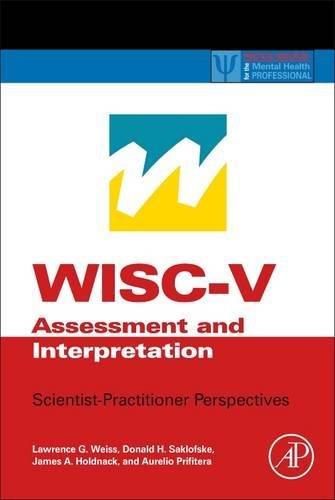Description
The Wechsler Intelligence Scale is the most widely used intelligence test for children world wide. WISC-V introduces new subtests, composite scores, process scores, error scores, and scaled scores as a more complex and accurate means of assessing cognitive abilities. WISC-V Assessment and Interpretation provides practical information for clinicians on choice of subtest measures, administration, and interpretation.
New subtests are described together with tips for accurate administration and scoring. Full Scale IQ is identified as vital for predicting relevant behaviors, and number one index scores for characterizing the child’s strengths and weaknesses. Classroom indicators of low scores on each and every of these abilities are identified, with suggested interventions, accommodations, and instructional strategies for low scorers. Coverage includes ethnic differences for the Full Scale IQ and each and every number one index score, together with evidence of the profound influence of parental attitudes and expectations. Several other societal and contextual factors relevant to understanding racial/ethnic differences are presented. Two chapters review use of the WISC-V for identifying learning disabilities, testing of individuals with dyslexia, and best-practice recommendations to verify accurate diagnosis and intervention. Concluding chapters describe advances in the Q-interactive system platform allowing administration of the WISC-V on iPads and other tablets and how clinicians can tailor assessment the usage of choose WISC-V subtests and features.
- Authored by the creators of the WISC-V
- Describes the new subtests, revised test structure, and test extensions
- Advises clinicians on test selection and custom tailoring of assessment measures
- Provides best practice recommendations for accurate administration and scoring
- Addresses electronic administration by way of tablets and comparison to print scores
- Reviews social/contextual factors for understanding racial/ethnic differences
- Translates scores to predict behaviors and identify child strengths and weaknesses
- Suggests interventions, accommodations, and instructional strategies for low scorers













































